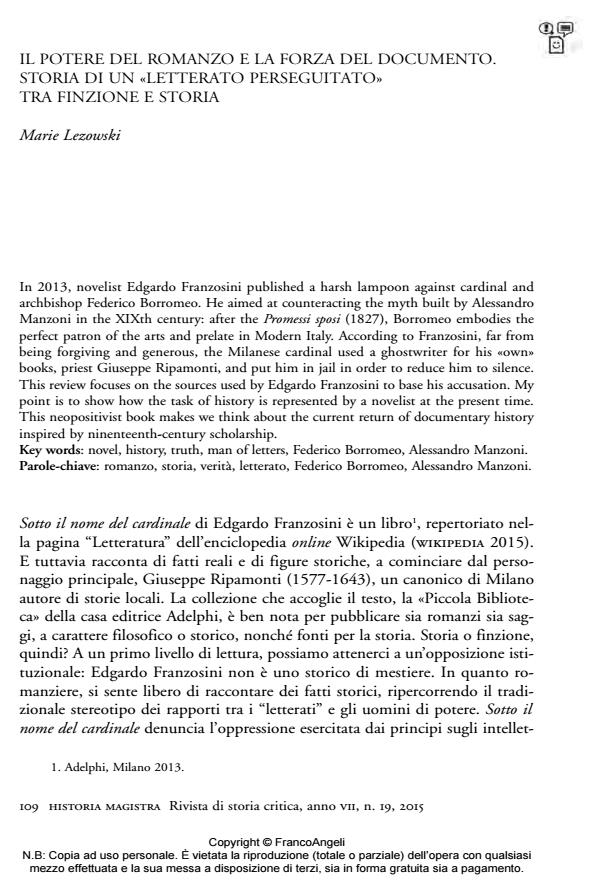Il potere del romanzo e la forza del documento. Storia di un «letterato perseguitato» tra finzione e storia
Titolo Rivista HISTORIA MAGISTRA
Autori/Curatori Marie Lezowski
Anno di pubblicazione 2016 Fascicolo 2015/19
Lingua Italiano Numero pagine 9 P. 109-117 Dimensione file 88 KB
DOI 10.3280/HM2015-019012
Il DOI è il codice a barre della proprietà intellettuale: per saperne di più
clicca qui
Qui sotto puoi vedere in anteprima la prima pagina di questo articolo.
Se questo articolo ti interessa, lo puoi acquistare (e scaricare in formato pdf) seguendo le facili indicazioni per acquistare il download credit. Acquista Download Credits per scaricare questo Articolo in formato PDF

FrancoAngeli è membro della Publishers International Linking Association, Inc (PILA), associazione indipendente e non profit per facilitare (attraverso i servizi tecnologici implementati da CrossRef.org) l’accesso degli studiosi ai contenuti digitali nelle pubblicazioni professionali e scientifiche.
In 2013, novelist Edgardo Franzosini published a harsh lampoon against cardinal and archbishop Federico Borromeo. He aimed at counteracting the myth built by Alessandro Manzoni in the XIXth century: after the Promessi sposi (1827), Borromeo embodies the perfect patron of the arts and prelate in Modern Italy. According to Franzosini, far from being forgiving and generous, the Milanese cardinal used a ghostwriter for his «own» books, priest Giuseppe Ripamonti, and put him in jail in order to reduce him to silence. This review focuses on the sources used by Edgardo Franzosini to base his accusation. My point is to show how the task of history is represented by a novelist at the present time. This neopositivist book makes we think about the current return of documentary history inspired by ninenteenth-century scholarship.
Parole chiave:Romanzo, storia, verità, letterato, Federico Borromeo, Alessandro Manzoni.
Marie Lezowski, Il potere del romanzo e la forza del documento. Storia di un «letterato perseguitato» tra finzione e storia in "HISTORIA MAGISTRA" 19/2015, pp 109-117, DOI: 10.3280/HM2015-019012